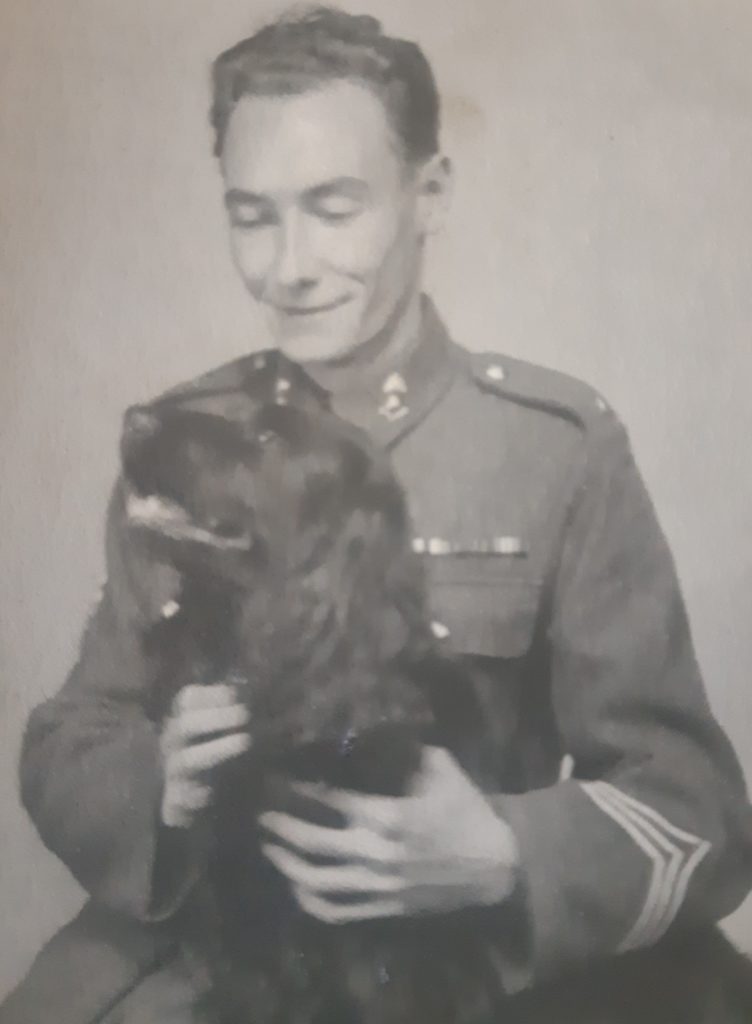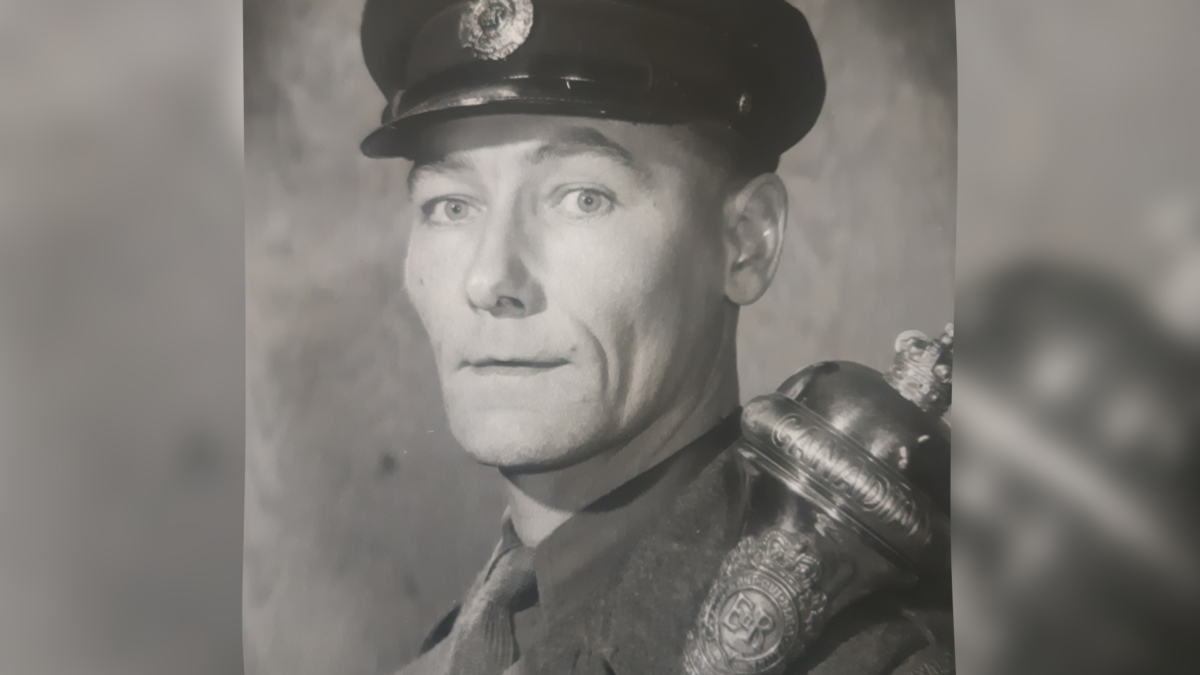November is a sombre month. With autumn well underway, temperatures drop and the nights are cool. Leaves scatter and they dance across the ground, crisp, like the weather. The sky is more often grey than blue, a proper backdrop for quiet thoughts and gentle reflection. It is the perfect month for Remembrance Day.
November 11th is the day we turn our thoughts towards those soldiers who failed to return from battle. Regardless of our feelings toward war, we grief the soldiers who suffered. We set this day aside to remember. We put aside the complexities of geo-political conflict and we instead, turn our minds and hearts to the simple soldiers. To remember men and women whom we never met, but whose sacrifice has probably impacted our lives. We remember family members, neighbours and friends whom we will never see again, who gave all on foreign soil. We respectfully remember all those young people who went off to war, following the beat of that jingoistic drum.
This is not a day to celebrate the ‘glories of war’. We should never forget that there is no glory in war. There is only pain and horror and death.
As former U.S. president Jimmy Carter so succinctly put it; “War may sometimes be a necessary evil. But no matter how necessary, it is always an evil, never a good.”
When we look inside ourselves, I believe we can all find personal reasons to quietly observe this day. If we evade the political nuances, if we do not get influenced by the arguments and bickering, and if we simply let our compassion lead us, we can fully grasp the depth and reverence this day deserves.
Roy Clinton Barnes is my reason to observe this day.
Roy was my father-in-law. He had served in the armed forces throughout his whole working life, first in the British military and then when he transferred to the Canadian Armed Forces in the 1950’s. He believed that the country needed a military but he also fervently hoped it would act as a deterrent to ever having to use it. Born in England in 1918, Roy was 79 when I met him and 91 when he died. In those 13 years, I got to know him well and during those years, I learned to love and admire him greatly.

Roy was a musician. He had an immense talent, as well as an abiding love for music. His passion for it was deep and belied his often staunch, no-nonsense demeanor. Roy told me that for him, joy could be found in music, in reading, in the Vancouver Canucks and in his family, not necessarily in that order. He was a very deep thinker, a workingman’s intellectual and a committed atheist, possibly due to the horrors he witnessed in World War II.
When Roy was in his nineties, he was hospitalized due to heart issues. I would come up to his room every night and we would sit in the quiet and chat.
During one visit, I asked him if during this latest health scare, he might be re-considering his belief in God. I remember saying with a smile, that it may be time to hedge his bets a bit. Contrary to the ‘no atheists in foxholes’ adage and in true ‘Roy’ fashion, he firmly told me that he was not re-considering a thing and that;
“If there is a God, I’d much rather be judged for being mistaken than for being a hypocrite.”
Roy was a tough old bird, but he also had a quick wit, a cockney accent, and sadly when I met him, very few friends left alive. He had been a stern but dependable father, a dutiful husband, yet the war had left him often cold and detached. He loved his family but was far from good at showing emotion.
Time was intent on taking the last vestiges of his life, leaving only his intellect and his memories, which seemed poised on being lost when he passed. Roy rarely talked about his experiences in the war, except when he was in his cups … and then only sparingly. Yet we grew close and he began confiding in me. He regaled me with first-hand accounts of what he’d been through, in the hope that I would share it with his grandchildren.
Roy’s story
In 1931, Roy lied about his age and enlisted with the Lincolnshire regiment at Portsmouth. He was attempting to escape poverty and an abusive home life but instead hopped from the frying pan into the fire. Just a thirteen year old boy, he was forced to begin the rigorous and brutal training of the enlisted man. It was a hardcore regimen back then, complete with humiliation, bullying, beatings and other forms of punishments designed to ‘toughen you up.’ It succeeded. Roy became an adult early, paying the price with a stolen childhood.
As fall approached in 1939, Britain sent 150,000 soldiers to assist the French in fighting off the Nazis. Young Roy went as a stretcher bearer. Almost immediately upon their arrival, they came under heavy fire and the engagement was fierce. With casualties high, Roy got his first taste of the destruction of war. It was far from his last.
Within weeks, and barely out of his teens, Roy was captured by the Germans, along with a few hundred other British and French soldiers. Thus began the 1,100 km march to the infamous Stalag VIII-B, a newly opened POW camp in Poland. Roy was to be imprisoned there for almost six years.
He told me about that march. He told me about the cold and the wet and the snow. He told me about the men who were shot trying to escape, their bodies left to rot. He told me of the relentless beatings, whipping them along, breaking bones and breaking spirits and still they marched. He told me of watching exhausted men stagger and fall, only to be ground under the armoured tracks of the tanks that were accompanying them. He told me of the despair, the fear, and the pain.
And Roy told me about the nuns who occasionally came to feed them, when they were billeted near a convent. These nuns would bring some spare clothing as well as food, and they secretly took messages back, relaying them to families who waited breathlessly at home for word of fathers, sons and brothers.
There were days that they didn’t eat at all and still they marched. Mornings often left lifeless bodies on the frozen ground, their last breaths stolen away in the night. And still, Roy and the other survivors marched. Roy’s eyes would tear up as he spoke, and his voice was barely audible when he told me about the hunger, the constant gnawing hunger.
Eventually they arrived at stalag VIII-B. Their numbers had decreased by at least a third. Corpses had been left as grim milestones along their journey. The survivors were in such terrible shape that sadly, many would not live through the first few weeks. Death was a constant companion within the confines of that camp. Death hovered over all their shoulders, breathlessly waiting on the next to fall. Sometimes, death was a welcome friend to the sick and starving, but more often than not, it was a grim enemy to be kept at bay for just one more night. And the nights kept moving on relentlessly.
Roy told me about the dysentery, the sickness, the hacking coughs, the freezing winters and the hellish summers. He told me of the torture, both psychological and physical. He spoke of the sadist guards and the cruelty they inflicted and he talked about the endless waiting. Waiting for food, waiting for medicine, waiting for news. And as his muscle melted away and his skin hung like an ill-fitting suit on his body, there was the waiting to die.
But Roy made it through. He managed to survive for six long years. It was only through sheer will and determination that he made it. Though he was practically skeletal when re-patriated, Roy had survived. He left stalag VIII-B as part of a prisoner exchange, burdened under the weight of immense baggage that he would carry for the rest of his days.
When he was sent home to recover in early 1945, Roy was advised that the war was over for him. He received a number of medals and was told to rest and recuperate. However, he had seen what true evil was, he had suffered at its hands. And so, he volunteered to go back. After a little over a month, Roy rejoined the Lincolnshire regiment and was sent to assist the Canadians in the liberation of Holland. He was one of the first to march triumphantly into Utrecht.
The years rolled by for Roy. The war finally ended and he married the love of his life. They began raising a family and then emigrated to Canada, where Roy transferred his British military service into the Canadian Armed Forces. Their kids grew up and raised families of their own and after retiring in the 80s, Roy and Joyce soon after moved to Revelstoke, BC.
Every November 11th, Roy would participate in the ceremony at the cenotaph in Revelstoke. He would stand in silent contemplation, remembering all of his mates who had never made it home. He would remember for them, for their families and he would remember for himself.
Often I would accompany him to the ceremony. He was quiet on these days, and sometimes a tear would escape his eye. But, even though his ancient body was frail, as the eleventh hour landed, his back was always straight and his head was high. I never asked for his thoughts when we left. I never had to ask what his heart was feeling and we would drive home in silence.
When Roy was too old and infirm and could no longer attend in person, I would go in his stead. Since 2009, when he passed, I continue to go and I haven’t missed a year. My son has accompanied me a few times, and I know that when my time passes, he will carry on for his grandfather and for me.
I wear the poppy, as Roy did, with pride, respect and no small share of grief. There are millions of people like Roy in many millions of people’s hearts. There are millions of unsung heroes who never aspired to walk the world stage and yet indelibly marked those they knew, with the depth of their sacrifice and the nobility of their lives.
I will always remember Roy. And I will remember them, as well.



